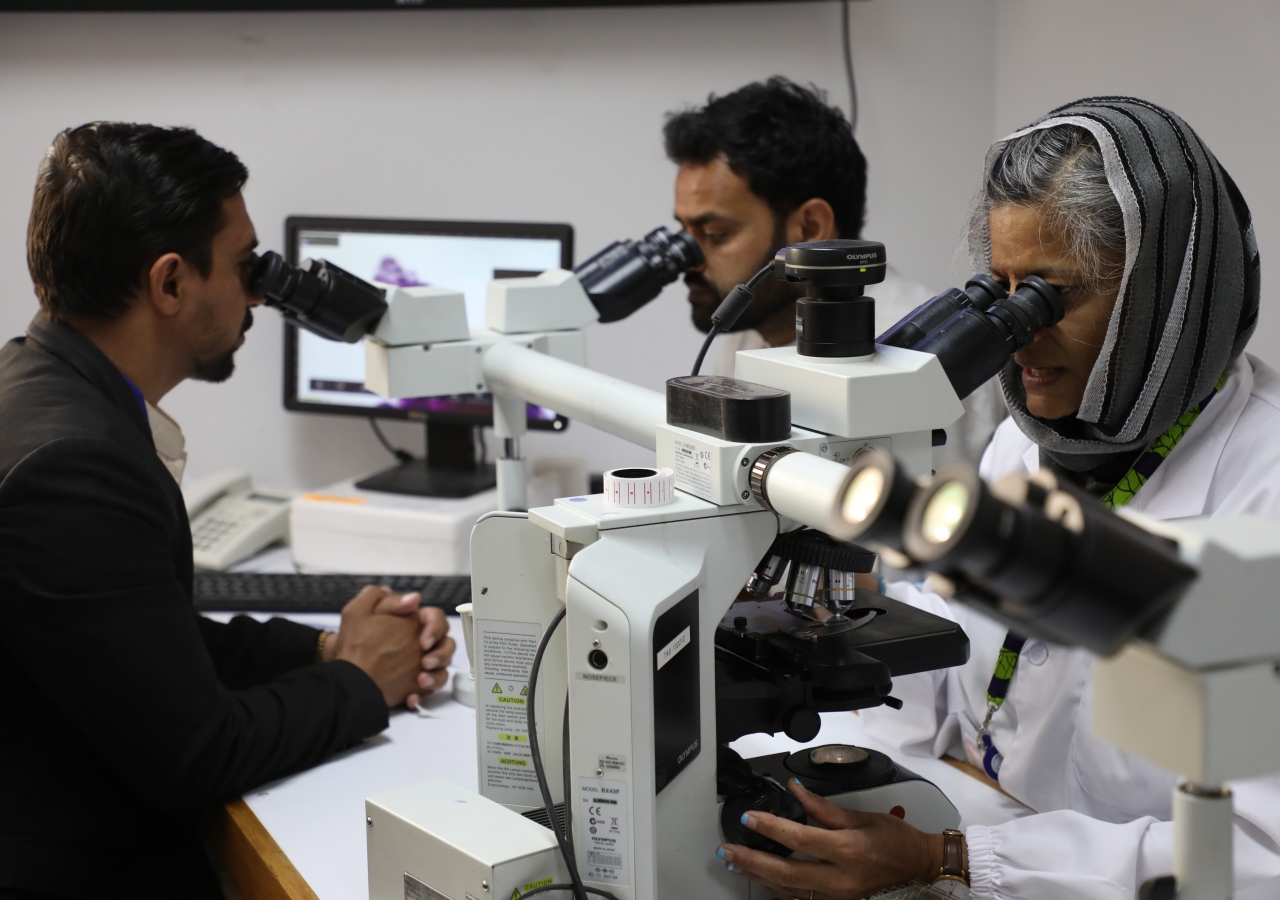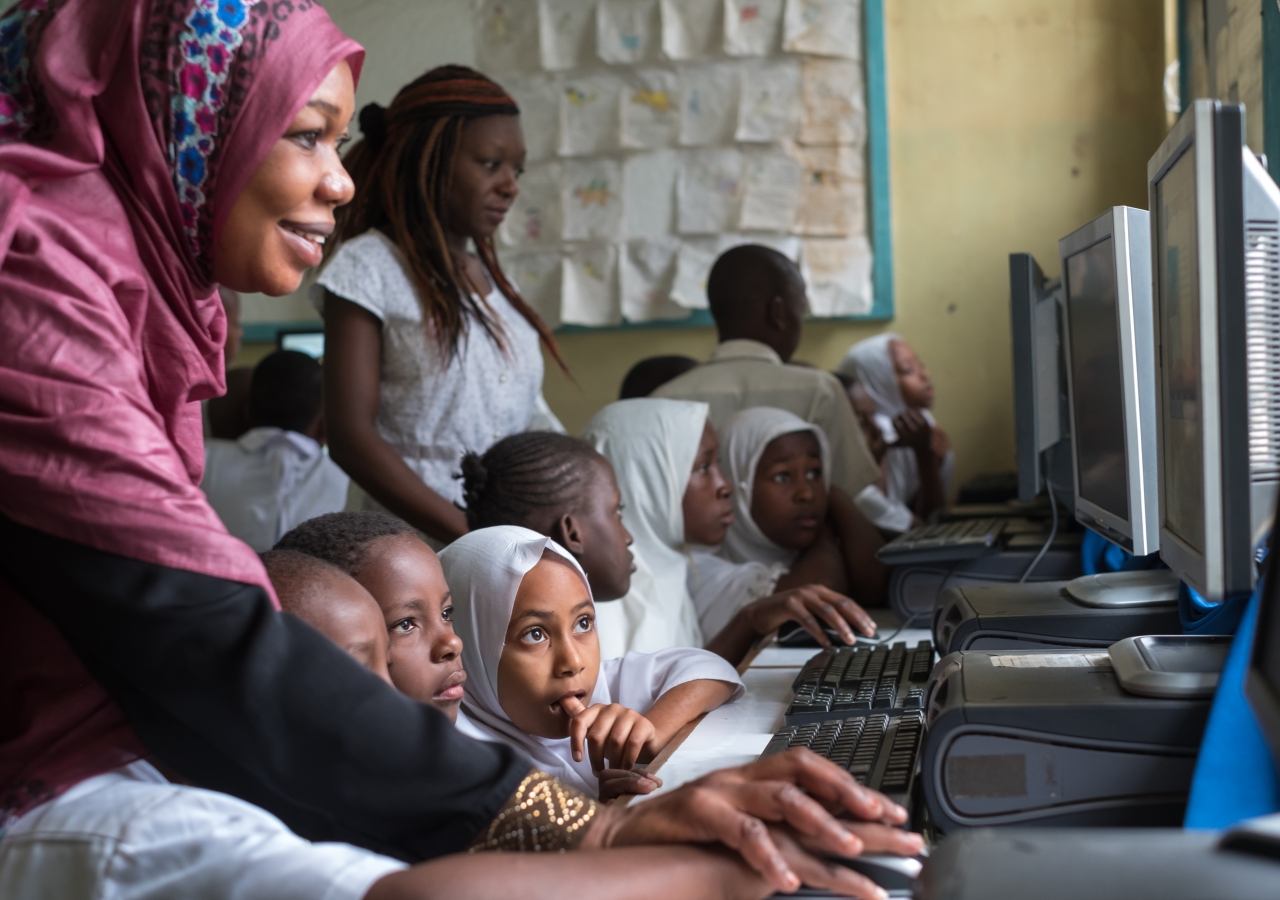FMIC, a leading healthcare institution in Afghanistan, operates through a unique four-way partnership involving the Governments of Afghanistan and France, La Chaîne de l'Espoir, and the Aga Khan Development Network (AKDN). This collaboration has enabled the hospital to provide world-class healthcare services, particularly in maternal and child health, while also expanding its reach in specialties like pathology and diagnostic services. FMIC prides itself on offering high-quality, accessible care to underserved populations in Afghanistan, with a focus on training and capacity building for healthcare professionals.
During her TKN assignment at FMIC, Rosemin Kara utilized her vast experience to deliver hands-on training to the laboratory staff, particularly focusing on improving diagnostic accuracy and enhancing overall laboratory practices. As a cytotechnologist with an extensive background in both clinical and educational roles, Rosemin was well-positioned to provide valuable insights into the improvement of cytology practices at FMIC. Her training sessions covered various critical aspects, including quality assurance, diagnostic techniques, and reporting practices.
Rosemin’s influence extended beyond training. With a keen eye for detail, she worked closely with the FMIC team to identify gaps in the laboratory’s workflows and suggested modifications to improve efficiency and accuracy. She assisted in improving standard operating procedures (SOPs), and helped streamline lab routines to enhance department-wide performance. The collaboration led to noticeable improvements in the lab’s operational efficiency and its overall ability to meet diagnostic standards.
Before her work at FMIC, Rosemin had already gained substantial experience through her previous involvement on another TKN assignment in Kenya at the Aga Khan University Hospital (AKUH) in Nairobi. She had volunteered there in 2015, 2017 and 2019, where she taught cytology to residents in Anatomic Pathology. During one of those visits, she helped conduct a mock accreditation to assess gaps in the laboratory’s processes and presented these findings to leadership, which enabled the lab to prepare for its upcoming accreditation. This experience further refined her ability to assess and improve laboratory practices in diverse settings.
Rosemin’s career has been characterized by her commitment to excellence in the laboratory setting. As a Clinical Instructor in Diagnostic Cytology at Calgary Laboratory Services, she led daily operations, developed educational programs, and provided mentorship to students. Her work was focused on improving student comprehension while minimizing learning time, enhancing practical skills, and ensuring the highest standards of laboratory work.
Her experience at Alberta Precision Laboratories as a Medical Laboratory Technologist, where she implemented quality assurance protocols and worked with the quality department to troubleshoot workflow issues, added another layer of expertise to her contributions at FMIC. This comprehensive background in both teaching and hands-on lab work made her an invaluable asset during her time at FMIC.
In recognition of her exceptional contributions, Rosemin was praised not only for her technical expertise but also for her ability to foster collaboration and create an environment of continuous learning within the FMIC team. The knowledge she imparted, coupled with her dedication to improving laboratory practices, will undoubtedly have a lasting impact on the institution's diagnostic capabilities.
Rosemin Kara’s journey reflects a deep commitment to enhancing healthcare standards internationally. Her contribution to FMIC through TKN is a testament to the power of knowledge sharing, and her efforts have played a significant role in elevating the laboratory’s standards and contributing to the overarching goal of improving healthcare in Afghanistan.










